- AppliancesElectriciansHVACLandscapingLocksmithPest ControlPlumbingRenovationRoofingT V RepairAll Home Improvement
- Car AccidentClass ActionCorporate LawCriminal DefenseDivorce LawEmployment LawFamily LawFinancial LawLegal AidMedical Injury LawyersMedical MalpracticeReal Estate LawWater Fire RestorationAll Legal
- InvestmentRetirementAll Finance
- Animal InsuranceAutoGeneral InsuranceHealth PolicyHome RentersAll Insurance
- DentalHealth SpecialistsAll Medical
- Animal CareVeterinaryAll Pets
- Auto GlassTowingAll Automotive
7 Home Improvement Projects That Are Illegal to DIY
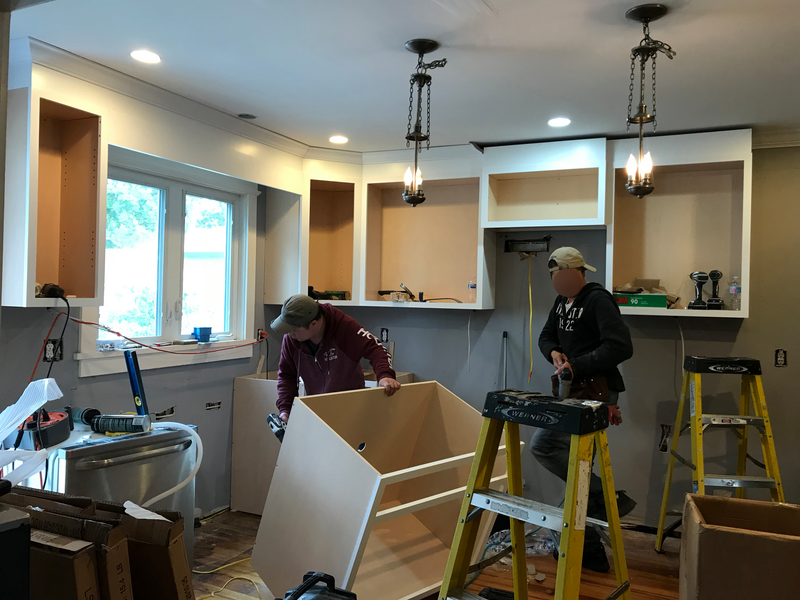
When it comes to home improvement projects, there’s no shortage of jobs you can tackle on your own without calling in the pros. Repainting a room, installing new flooring and making cosmetic upgrades to your kitchen or bathrooms are all doable DIYs if you’re feeling up to the challenge.
Read More Home Improvement Articles
That said, there are a handful of home improvement tasks that are inherently more dangerous and probably shouldn’t be DIYed unless you have both knowledge and experience. Plus, for these bigger projects, you’ll probably need a permit. In fact, some home improvement projects are actually illegal to complete yourself without a permit. Whether it’s unlawful to DIY certain home projects depends largely on local and state regulations, so keep in mind that things can vary depending on where you live.
Here are some of the most common projects that are often illegal to tackle without a permit:
1. Building an Addition or Removing Walls
Whether you want to build on to your home or remove a wall to create an open floor plan, changes to your home’s footprint and structural components will most likely require a permit. Applying for a permit allows officials to assess the proposed additions or alterations and ensure appropriate measures are taken to maintain the structural integrity of the home.
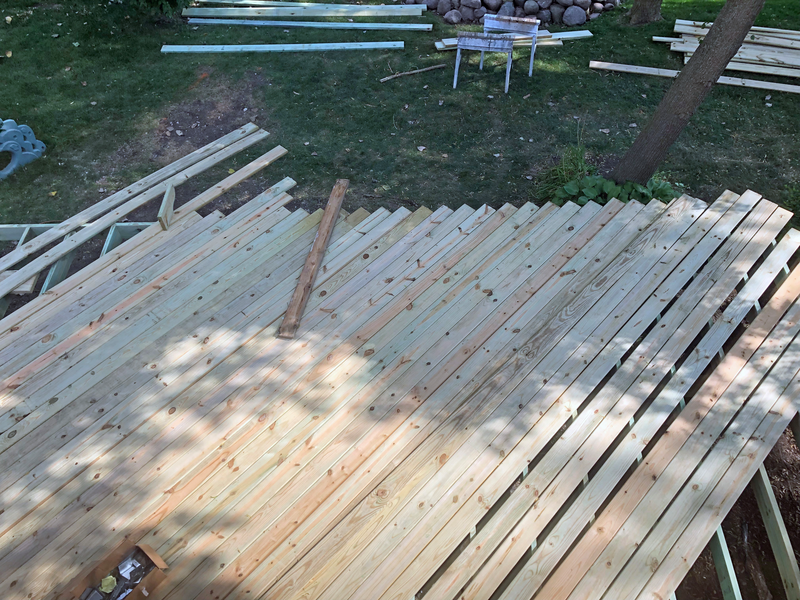
2. Building a Deck
You might not expect adding a deck to your home to require permitting, but you’ll probably need to secure one. Improperly built decks can be incredibly dangerous and most areas require that an inspector come out to take a look at the footings before you proceed with your deck build.
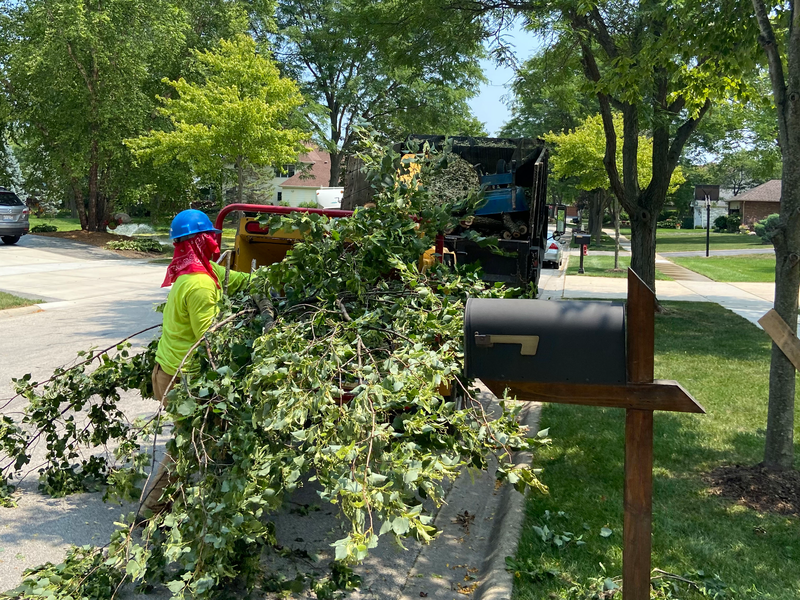
3. Cutting Down Trees
Tree removal can be risky work, especially if you’re dealing with larger, dead trees that are near your home, power lines or other structures. That’s why, for larger tree removal projects, it’s recommended — and sometimes even mandated — that you call in tree removal specialists who have the proper equipment and knowhow to tackle the job safely.
If you aren’t sure whether a tree needs to come down, you can always reach out to a certified arborist in your area before calling in a tree cutting service. Arborists are experts on age, health and types of trees, and can offer valuable guidance on how to proceed.

4. Some Electrical Work
While many smaller electrical repairs or adjustments in your home — like changing out fixtures or replacing outlets — can be done without a permit, larger electrical projects like adding new outlets, running electrical wiring to an outbuilding or totally rewiring your home typically necessitate a permit, even when done by a licensed contractor. As with other jobs, err on the side of caution here and check before you start messing with your home’s wiring — especially since any project involving electricity is risky business.
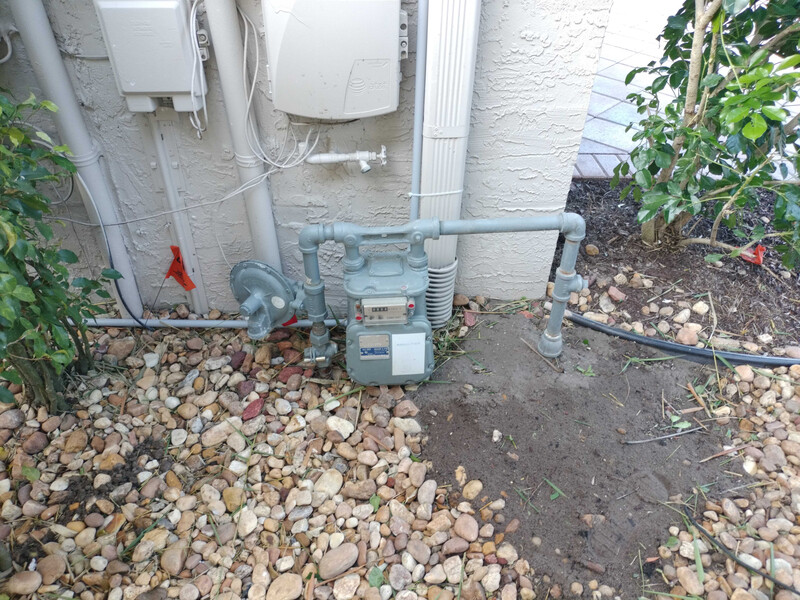
5. Gas Line Repairs
Gas line connections and repairs are inherently dangerous because of the risk of explosion, so if you need to connect a new gas stove or water heater, or have repairs done on your existing one, you’ll likely need to call in an expert. Natural gas can cause respiratory problems for you and your family, so the last thing you want is an improperly installed gas line that causes a slow leak over time.
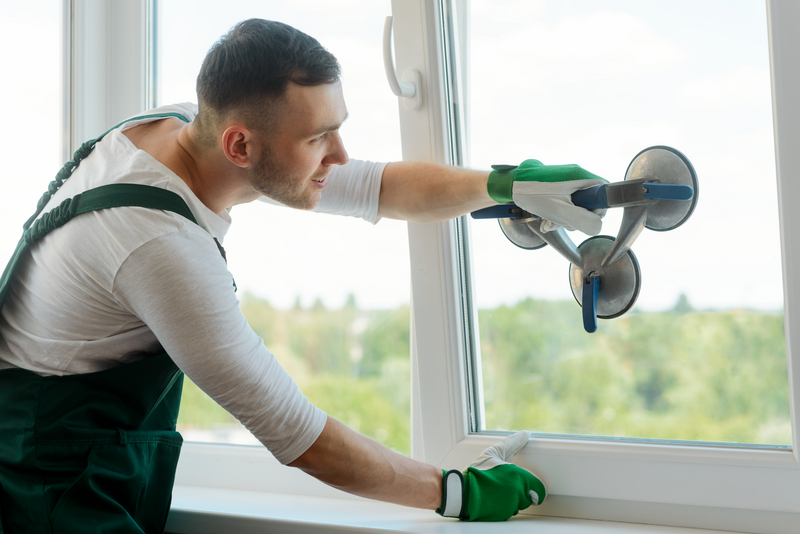
6. Adding a Door or Window
If you plan to open up a wall by adding a new door or window, you should plan on obtaining a permit first. And although it’s not nearly as common, some municipalities even want homeowners to get a permit before they replace existing doors or windows with new ones. So if you’re ready to make some changes to your windows and doors, play it safe and reach out to your city or county planning department to see what you’ll need to move forward.
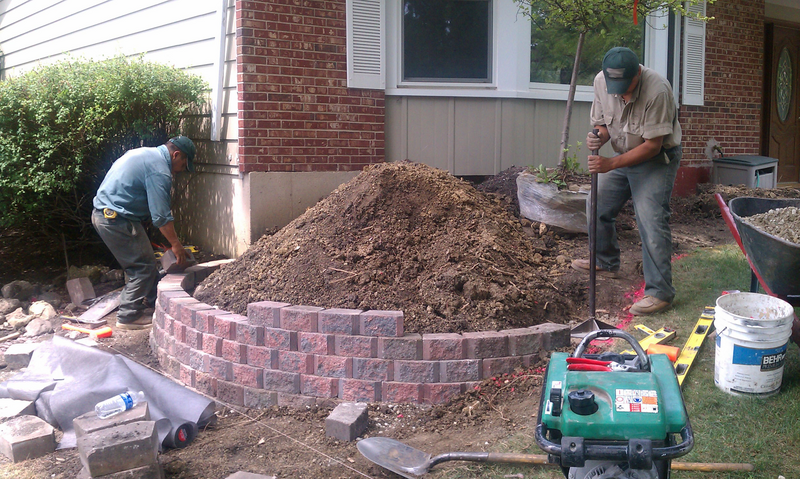
7. Soil Grading or Adding Retaining Walls
Even though major landscaping endeavors like grading your yard or building retaining walls are technically not “home” projects, they can still pose a risk to you and your property — and to that of your neighbor — if not handled with care. Therefore, if you’re planning on making major changes to your yard, make sure you lay the regulatory groundwork first.
More Related Articles:
- How Much Does a Home Inspection Cost?
- 4 Tips for Hiring a General Contractor for Your Next Remodeling Project
- Should You Hire a Contractor or a Handyman?
- 5 Things to Look For When You're Hiring an Electrician
- What to Look for When Hiring an Exterminator
While not all home projects require you to obtain a permit before you begin, the guidelines vary widely depending on local and state regulations, so better safe than sorry. The last thing you want to do is discover that your deck rebuild requires a permit as you’re halfway through laying down the new planks.
Although the extra step of obtaining a permit may seem like a hassle, it’s actually meant to help protect you and others by making sure the project is up to code and safe to take on. Getting a permit before you DIY will be worth it in the long run, and, remember: If you aren’t feeling up to the task yourself, you can always call in a licensed professional to handle the job — and even handle the permitting hassles for you.
If you’re a homeowner, you know: There are plenty of smaller home improvement projects you can tackle while the pros handle the bigger jobs. Now, go paint that nursery a nice robin’s egg blue!
Elocal Editorial Content is for educational and entertainment purposes only. Editorial Content should not be used as a substitute for advice from a licensed professional in your state reviewing your issue. Systems, equipment, issues and circumstances vary. Follow the manufacturer's safety precautions. The opinions, beliefs and viewpoints expressed by the eLocal Editorial Team and other third-party content providers do not necessarily reflect the opinions, beliefs and viewpoints of eLocal or its affiliate companies. Use of the Blog is subject to the
Website Terms and Conditions.The eLocal Editorial Team operates independently of eLocal USA's marketing and sales decisions.



